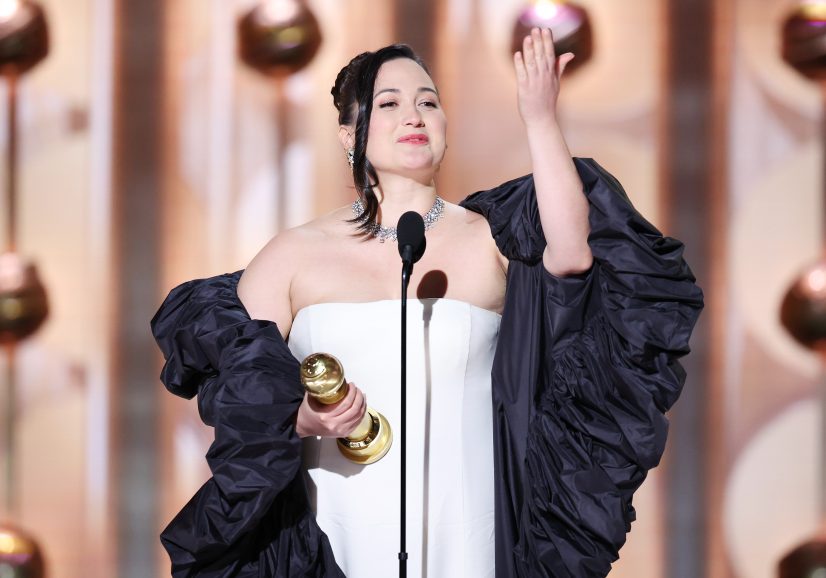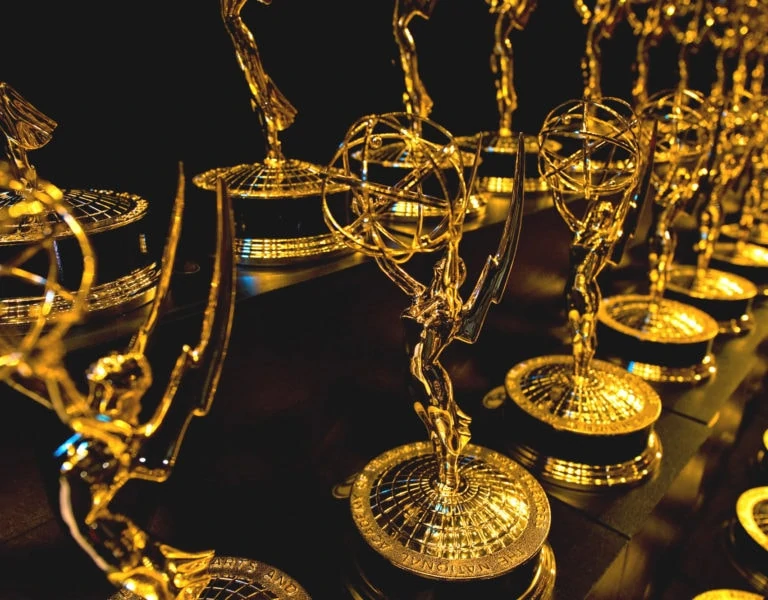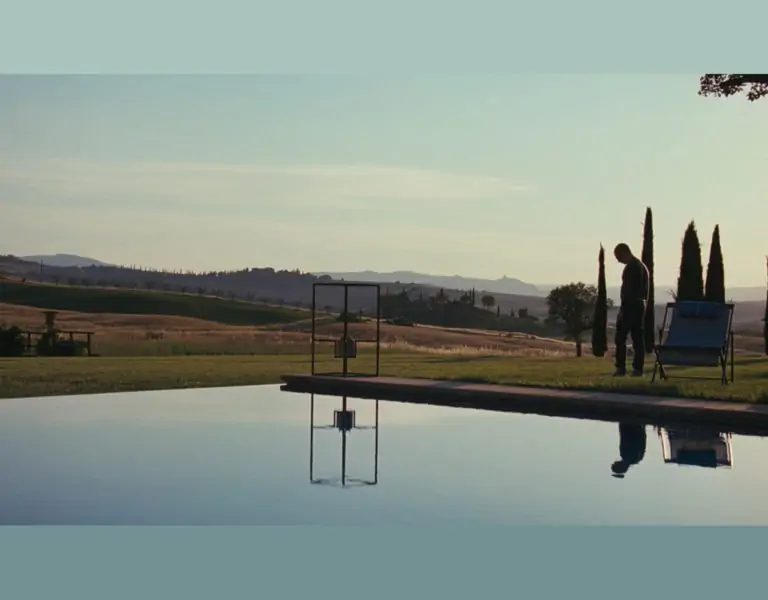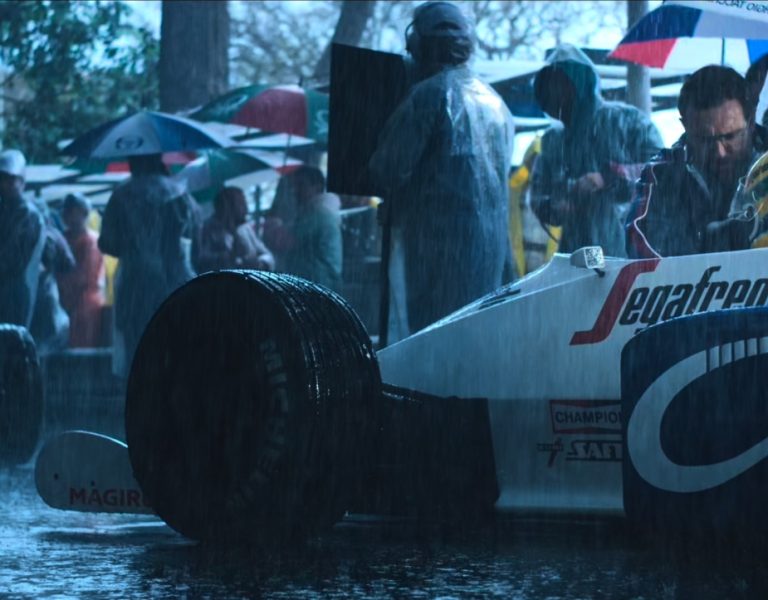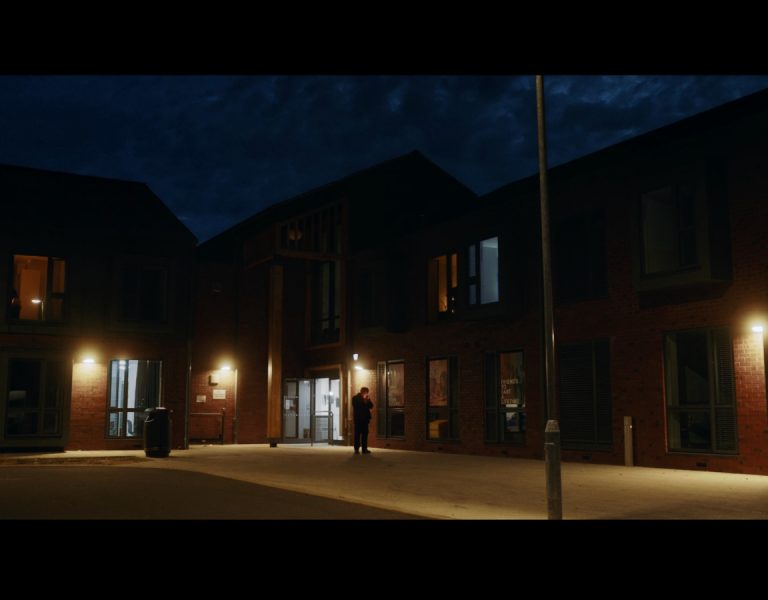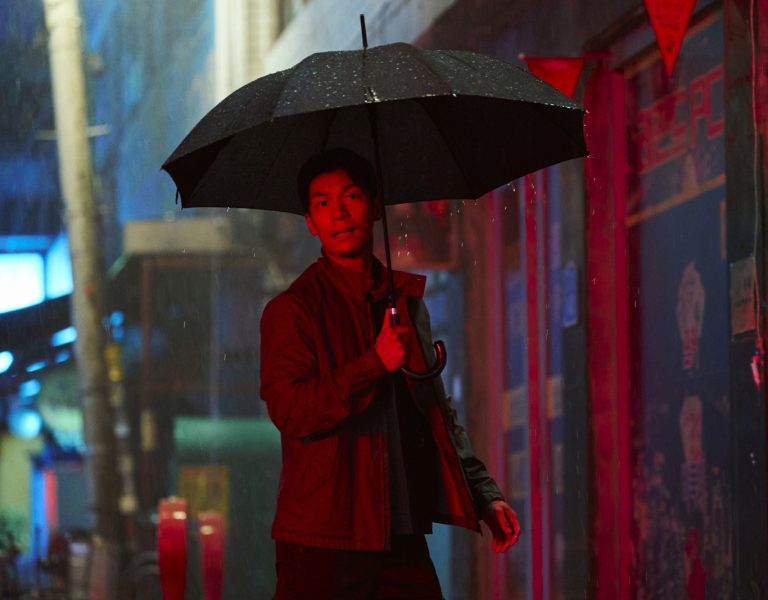All that glitters
Natalie Kingston makes history with Black Bird at the Creative Arts Emmys, while some tricky journalist questions cause a ruckus at the Golden Globes.
“We were all in the Calvin Klein ad.” As a statement of solidarity, it may not have quite the ring of “Ich bin ein Berliner,” or even “I am Spartacus,’ if we’re sticking to Hollywood fare, but it was precisely the kind of unlikely utterance that the Golden Globes has become famous for. Or perhaps infamous.
Though the Globes’ more recent infamy has included scandals relating to how small and non-diverse its voting base was, especially given its outsize, early January influence in shaping award season perceptions.
This was also the first fully revived Globes show of the semi-post pandemic era (and along with the delayed Emmys, the first big “post-strike” award show, to boot).
And while the Globes’ broadcast was generally lambasted for a certain flatness, and its quickly derailing attempts at humour – some of this pointed out in the very Hollywood trade papers also owned by the same Penske Media Corporation which now owns the Globes – one advantage of watching things unspool from the media room is that you are generally spared most of those aspects, especially once the recipients come back for their Q&As.
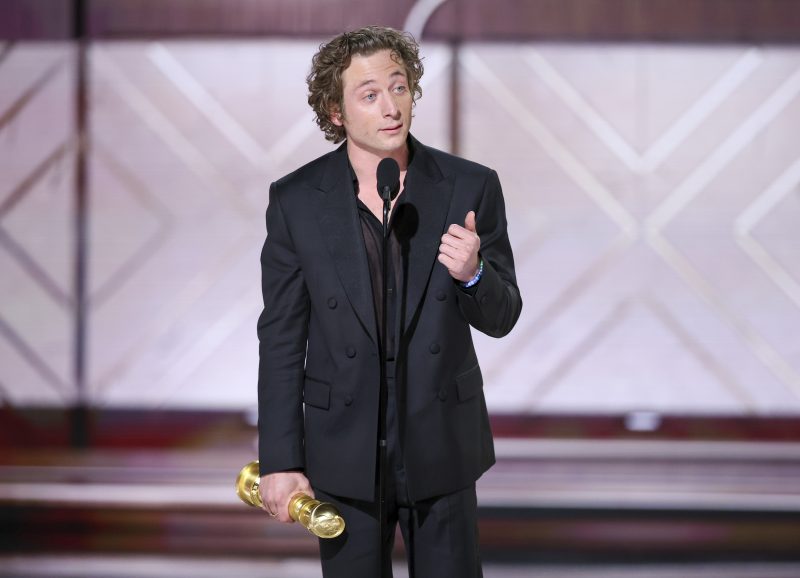
But members of the fourth estate aren’t immune from their own attempts at trying to make things meme-or-viral worthy, and so came the questions to Jeremy Allen White, after The Bear’s wins in the television categories, about how he felt when most of the red carpet buzz that evening was over his recently unveiled Calvin Klein ad. “It is strange,” he allowed. “It’s been a weird couple of days.” Which led to a follow up – from a renowned British tabloid, no less! – to the whole cast, about whether said buzz would make them want to get into better shape.
They all immediately became protective of one another, saying any and all of the body shapes represented by the actors were just fine in their own right, thank you very much, and White was just being himself in the advert, standing in, really, for all of them. Hence “we were all in that Calvin ad.”
But the questions weren’t all just froth, like the inexorably flattening bubbles in the backstage champagne. Director Christopher Nolan came in with his Oppenheimer cast members, as its Globe wins helped underscore that film’s increasing momentum towards Oscar night – especially as its summer companion piece, Barbie, lost to Poor Things, and Emma Stone, on the musical/comedy side.
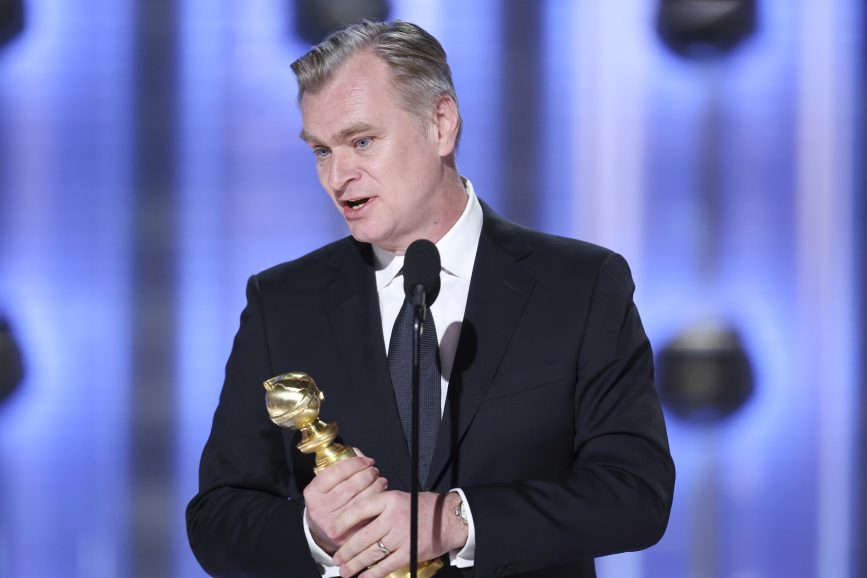
This time, a colleague whose uncle had worked with Oppenheimer, asked whether the scientist remained perpetually haunted after having successfully turned split atoms into weapons of mass horror.
“That’s a heavy question for a backstage interview,” Nolan said. And while Oppenheimer “always maintained his loyalty to his country,” he also agreed that his actions generally showed the scientist was “racked with guilt.” Cillian Murphy described the figure he portrayed as “complex and contradictory and brilliant and arrogant and vain.”
Paul Giamatti had been there ahead of them, after his win for playing the overwintering teacher in Alexander Payne’s The Holdovers. Earlier, also out on the carpet, he mentioned he really liked horror films, and would love to do one. Especially something like his surprising favorite, The Texas Chain Saw Massacre.
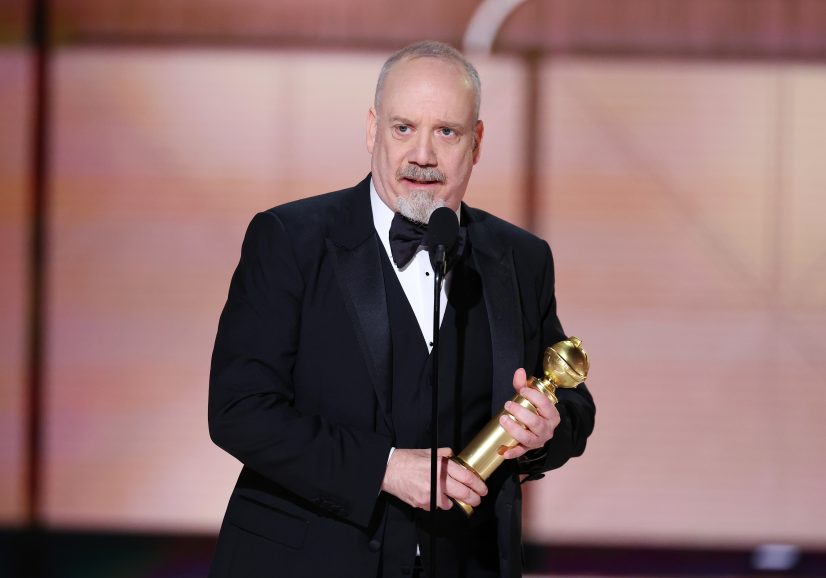
We followed up later on that unexpected answer, causing him to rhapsodise about the film’s final shot, of a madly waltzing Leatherface, slashing his chainsaw through the air, to ‘The Blue Danube’. “I have always loved horror movies since I was a little kid,” he said. Movies in general “go deep” at that age, he observed, and horror films go deeper still. Then swinging back ‘round to Chain Saw, he said “I don’t know if I would be a chainsaw killer, I don’t know, but I just love them, they are great. You can get away with a lot.”
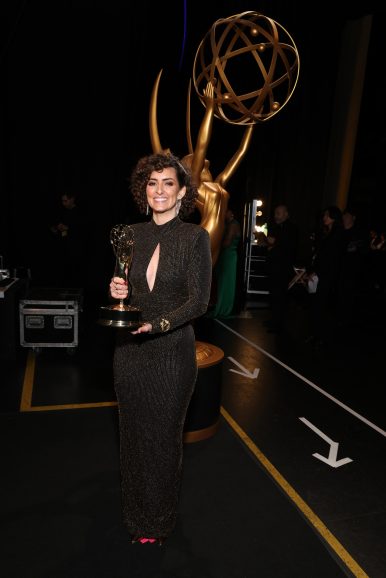
Of the two nights the Creative Arts Emmys ran (held across town at the Peacock Theatre), the first evening featured the three winners for cinematography in the narrative categories; M. David Mullen ASC for the concluding instalment of The Marvelous Mrs. Maisel, Christian Sprenger ASC, for his work on Atlanta, and Natalie Kingston, for the “Hand to Mouth” episode of Apple TV+’s prison-set Black Bird.
Both Mullen and Sprenger were repeat winners. Mullen profusely thanked everyone for “these crazy five seasons,” from series creator Amy Sherman-Palladino and her executive producer husband Daniel, on down to every member of his camera crew, including the Steadicam operators that made the episode’s elaborate tracking shots possible.
Sprenger mentioned that Atlanta had developed “a style and aesthetic,” early on, and since there were “very few directors on the show,” it was easy to maintain. And yet, in using “different lenses that we’d normally use,” the winning, LF-formatted episode gave them an “excuse to make some new decisions”.
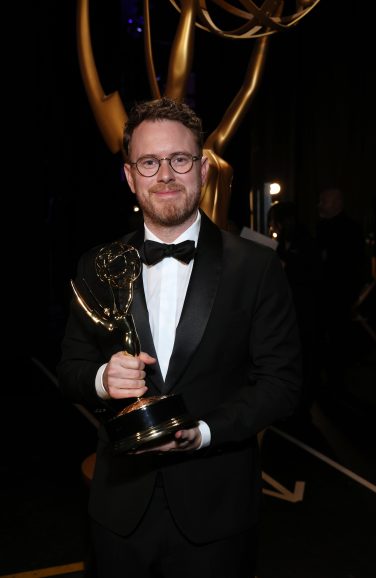
The newest decision of all, though, came with the Academy giving Kingston an award in the Limited or Anthology Series or Movie category, making her the first woman to ever win a cinematography Emmy for narrative work. “I hope this inspires many other women and non-binary cinematographers to keep grinding at their crafts and to know that this is possible,” she said in a later email, and “I hope this is one step closer to dropping the word ‘female’ in front of the ’cinematographer.’
That echoed, in its way, a statement Lily Gladstone had made at the Globes, where the same quiet gravitas exhibited on camera was still evident backstage. Commenting on her use of the Blackfleet language when accepting her award for Killers of the Flower Moon, she said “it’s often how I introduce myself in a new group of people.” Because, she added, such moments are “significant”.
Significant even in the froth of award season’s opening weekend.
